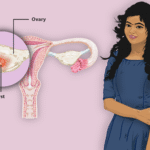Navigating your health journey can feel complex, but understanding common health concerns is a powerful first step. Proactive management of your well-being involves recognizing key health priorities and knowing when to seek professional guidance. This approach supports long-term health and helps you make informed decisions. This overview provides practical information on key aspects of women wellness, from routine screenings to recognizing signs that warrant a medical consultation.
What Are Key Women Wellness Priorities?
Focusing on specific areas of health can create a solid foundation for overall well-being. These priorities cover a range of physical and mental health aspects that are particularly relevant throughout a woman’s life. Addressing them helps maintain balance and supports a healthy lifestyle.
- Reproductive and Sexual Health: This area encompasses a range of topics, including menstrual cycle regularity, family planning, and menopause management. Maintaining reproductive health involves regular check-ups and open communication with a healthcare provider about any changes or concerns.
- Heart Health: Heart disease is a significant health issue for women. Managing risk factors such as blood pressure and cholesterol levels, and maintaining a healthy weight through a balanced diet and regular physical activity, are foundational to cardiovascular wellness.
- Bone Density: Women are more susceptible to osteoporosis, a condition that weakens bones. Adequate calcium and vitamin D intake, combined with weight-bearing exercise, helps build and maintain strong bones, especially after menopause.
- Mental and Emotional Well-being: Mental health is integral to overall wellness. Managing stress, recognizing symptoms of depression or anxiety, and seeking support from professionals or community networks contribute to emotional balance.
Understanding these pillars of women wellness allows for a targeted approach to self-care and medical supervision. Each area is interconnected, and paying attention to one can have a positive impact on others, creating a holistic benefit for your overall health.
Which Screenings Are Done?
Preventive screenings are designed to detect potential health issues before they become serious problems. These tests are recommended at different life stages based on age and personal risk factors. Your healthcare provider can help you create a personalized screening schedule.
- Cervical Cancer Screening: Pap tests and HPV tests are used to screen for cervical cancer. The frequency of these tests depends on your age and past results.
- Breast Cancer Screening: Mammograms are the primary tool for detecting breast cancer. Guidelines for when to start and how often to get a mammogram vary, so discuss your personal risk factors with a doctor.
- Blood Pressure Screening: Regular blood pressure checks are quick and can identify hypertension. High blood pressure is a risk factor for heart disease and stroke.
- Cholesterol Screening: A lipid panel measures cholesterol and triglyceride levels in your blood. These screenings help assess your risk for cardiovascular disease.
Following a recommended screening schedule is a proactive step in managing your health. These tests provide valuable information and can lead to early intervention if any issues are identified. Staying current with your screenings is a key component of preventive care.
When Should Women Seek Care?
Beyond routine appointments, there are times when you need to contact a healthcare provider. Listening to your body and recognizing unusual symptoms is a main part of self-care. It is a good practice to schedule an appointment if you experience persistent or concerning changes.
New or unexplained symptoms, such as sudden pain, unusual fatigue, or unexpected weight changes, warrant a medical evaluation. Similarly, changes in your menstrual cycle, such as heavy bleeding or missed periods, are a reason to consult a provider. Mental health concerns, including prolonged feelings of sadness or anxiety that interfere with daily life, also deserve professional attention.
Book an Appointment
Taking charge of your health is a continuous process. Regular check-ups and open conversations with a healthcare provider empower you to manage your well-being effectively. If you have questions about women wellness or are experiencing symptoms that concern you, scheduling a visit is a positive step. Contact our office today to book an appointment with a provider who can offer guidance tailored to your individual health needs.










